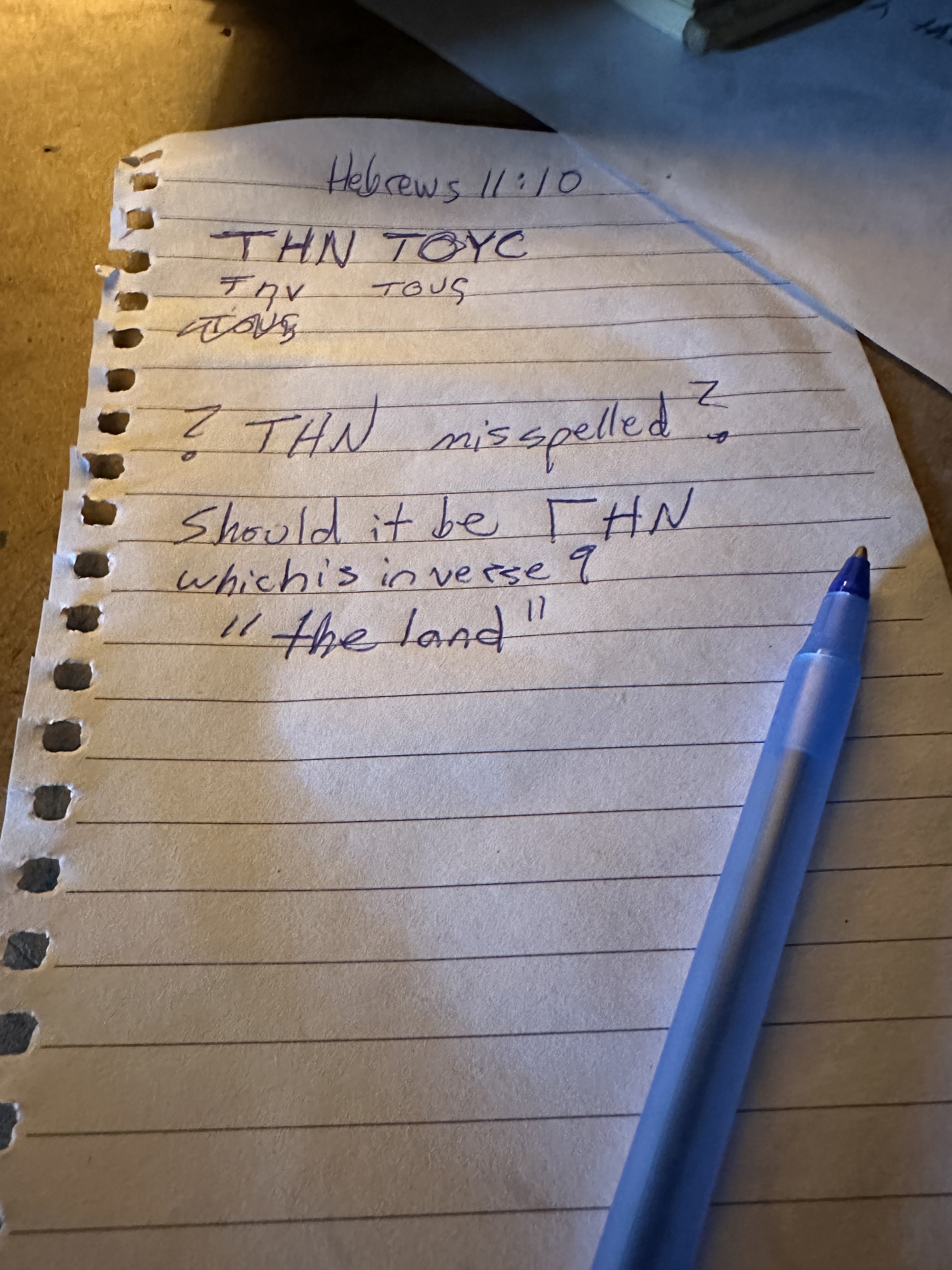In Hebrews 11:10, what city was Abraham looking forward to?:
ESV
Heb 11:10 For he was looking forward to the city that has foundations, whose designer and builder is God.ISV
Heb 11:10 because he was waiting for the city with permanent foundations, whose architect and builder is God.Darby
Heb 11:10 for he waited for the city which has foundations, of which God is the artificer and constructor.
Was he anticipating the descent of the New Jerusalem from the sky to the dry land per Revelation 21:2-3?
Rev 21:2 And I saw the holy city, new Jerusalem, coming down out of heaven from God, prepared as a bride adorned for her husband. Rev 21:3 And I heard a loud voice from the throne saying, "Behold, the dwelling place of God is with man. He will dwell with them, and they will be his people, and God himself will be with them as their God.
If so, where did he get the idea of a descending city?
If not, what was he looking for? Was he looking for it to appear in the sky or was he looking for it in the land he was sent to from Ur?
Might the author of "To the Hebrews" have had Sophia's house in mind?
ESV Pro 9:1 Wisdom has built her house; she has hewn her seven pillars.
All of the references to a city of God's building appear to be much later than anything Abraham might have been influenced by. Is there anything in any other texts, such as the scrolls of Enoch that connect Abraham to a city?

